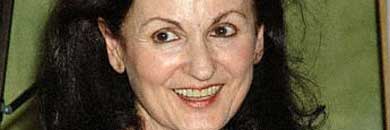Your support helps us to tell the story
From reproductive rights to climate change to Big Tech, The Independent is on the ground when the story is developing. Whether it's investigating the financials of Elon Musk's pro-Trump PAC or producing our latest documentary, 'The A Word', which shines a light on the American women fighting for reproductive rights, we know how important it is to parse out the facts from the messaging.
At such a critical moment in US history, we need reporters on the ground. Your donation allows us to keep sending journalists to speak to both sides of the story.
The Independent is trusted by Americans across the entire political spectrum. And unlike many other quality news outlets, we choose not to lock Americans out of our reporting and analysis with paywalls. We believe quality journalism should be available to everyone, paid for by those who can afford it.
Your support makes all the difference.In August, the publisher Saqi's warehouse in Beirut was bombed. Among the books inside were these two anthologies. Perhaps books provide no protection against bombs and bullets, but these short stories by Lebanese (Hikayat) and Palestinian (Qissat) women writers offer valuable ammunition against the impoverished imagination of political discourse. While it's impossible to forget that these stories were written in the context of dispossession and war, the diversity of authors, and of themes and styles, insist on the singularity of each voice.
Established authors like Layla Baalbaki, Emily Nasrallah, Hanan al-Shaykh, Laila al-Attrash and Liana Badr share space with exciting, emerging writers like Patricia Sarrafian Ward, Iman Humaydan Younes, Selma Dabbagh and Raeda Taha. Their stories are in turn lyrical, sensuous, comic and ironic. The two collections offer a rare and fascinating, if fragmentary, insight into the lives of individuals enduring the long civil war in Beirut, of Palestinians blockaded in the West Bank and Gaza, as well as exiles and émigrés in Arab states, Europe and America.
Many stories spring out of everyday political realities. Israeli checkpoints, omnipresent in Palestinian life, feature frequently. Liana Badr's "Other Cities", Randa Jarrar's "Barefoot Bridge" and Raeda Taha's "A Single Metre" employ black humour to evoke the frustration and fear of living under blockade. "First my land, now my Guccis. God damn it," complains a woman as she accuses an Israeli soldier of stealing her shoes in "Barefoot Bridge".
In "Other Cities", a headstrong young mother decides to take her five children on a trip from Hebron to Ramallah although she lacks papers and thus risks deportation. Umm Hasan is no saintly victim, yet her courage inspires a moment of epiphany in an Israeli soldier, as he contemplates "all the things he couldn't bear to lose". Loss is a recurrent theme - of love, of innocence, of children. A father is driven mad by grief in Nasrallah's "The Green Bird"; a mother prays at the Virgin Mary's shrine for the return of her daughter in an extract from Younes's novel B for a House named Beirut.
The celebration of sensuality challenges social taboos and political constraints. Baalbaki's "A Spaceship of Tenderness to the Moon" and Nadine Touma's "Red Car" are both poetic and erotic, the latter transgressively so when the couple make love in a mosque. The polymorphously perverse young novices indulging in an orgy of lipstick in a convent in Mai Ghoussoub's gorgeously surreal "Red Lips" are reminiscent of Georges Bataille. Sensual reverie becomes a defiance of domestic drudgery in Huzama Habayeh's "A Thread Snaps", but fantasy has unhappier consequences in Hanan al-Shaykh's "The Hot Seat", comic and acerbic in its portrait of "prim and proper" Middle Eastern sexual values.
The collections include stories written in English and French as well as Arabic. Of the many translations here, Sleiman El-Hajj and Catherine Cobham's in particular convey their varied voices with fluency and poetry. Current affairs gives a renewed sense of urgency to these vital and vibrant collections, but it is the quality of subtle, evocative writing here that makes these two anthologies remarkable.

Join our commenting forum
Join thought-provoking conversations, follow other Independent readers and see their replies
Comments